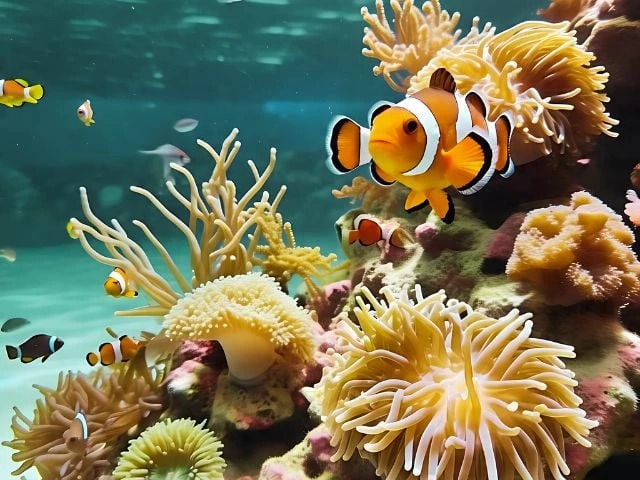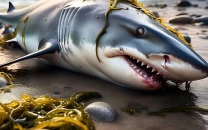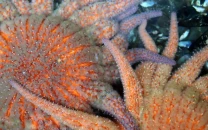Clownfish shrink during marine heat wave to survive, scientists say
Researchers uncovered a unique energy-saving response in tropical marine species

Some clownfish off the coast of Papua New Guinea shrank their bodies during a marine heat wave — and the smaller fish were more likely to survive, according to a new study.
Scientists tracked 134 clownfish in Kimbe Bay during a record marine heat wave in 2023 that continues to bleach coral reefs around the world. Of those, 101 were observed to have temporarily shrunk in length, researchers reported.
“We were really shocked at first when we saw that they were shrinking at all,” said Morgan Bennett-Smith of Boston University, one of the study’s authors.
The findings, published Wednesday in Science Advances, shed new light on how coral reef fish are adapting to more frequent and intense marine heat waves linked to climate change.
The researchers suspect the clownfish may reabsorb bone matter to reduce their size. Shrinking could help conserve energy, as smaller bodies require less food to survive in high-stress environments.
In some cases, clownfish pairs appeared to synchronise their shrinking. Female fish remained larger than males, preserving the species’ female-dominated social structure even as both fish lost size.
“Certain pairs adjusted together to maintain hierarchy — it’s fascinating,” said study co-author Melissa Versteeg from Newcastle University.
While temporary size reduction is known in other animals — such as marine iguanas during El Niño events — this is the first time scientists have documented the behaviour in coral reef fish.
“This is another tool in the toolbox that fish are going to use to deal with a changing world,” said Simon Thorrold, an ocean ecologist at Woods Hole Oceanographic Institution, who was not involved in the research.
Importantly, the scientists observed that the clownfish grew back to normal size once conditions improved, suggesting a temporary coping mechanism rather than a permanent shift.
“These natural systems really are under stress, but there’s a capacity for incredible resilience,” Versteeg said.
Researchers caution, however, that it's not yet clear whether the fish can continue to shrink and regrow if marine heat waves persist or become more severe.




























COMMENTS
Comments are moderated and generally will be posted if they are on-topic and not abusive.
For more information, please see our Comments FAQ